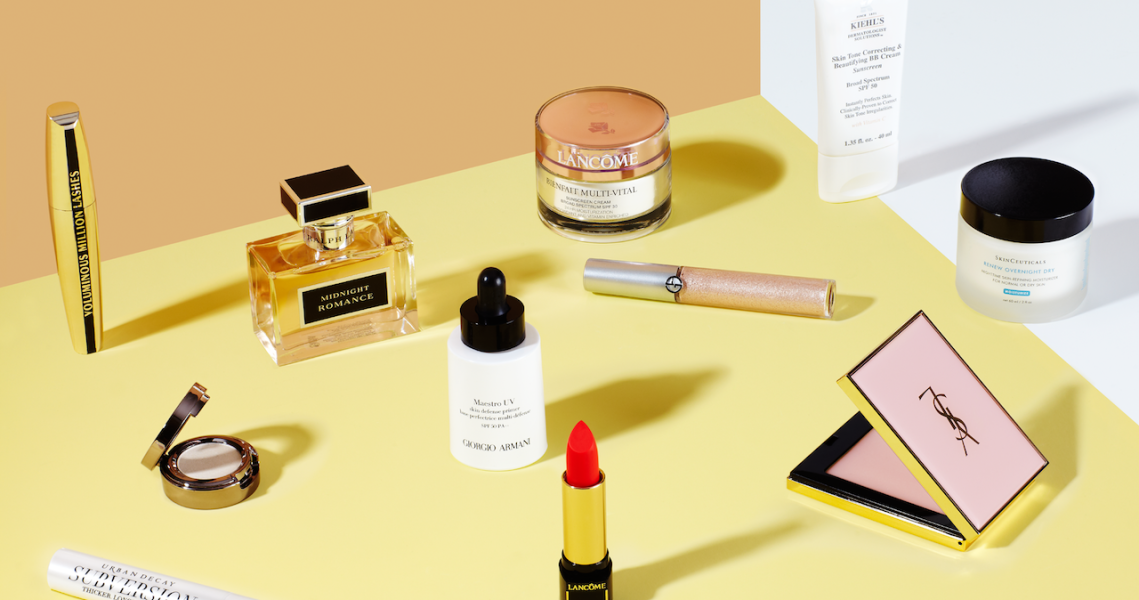In the mid-2010s, beauty conglomerates began to recognize the power of black-founded businesses. In 2014, L’Oréal USA purchased Carol’s Daughter, founded by Lisa Price, to expand its multi-cultural beauty offering. At the time, the company was valued at $27 million. And in 2017, Unilever purchased Sundial Brands made up of SheaMoisture, Nubian Heritage, Madam C.J. Walker and Nyakio from black entrepreneur Richelieu Dennis. At the time, the business was reportedly valued at approximately $1.6 billion.
But as all types of consumer companies show unprecedented outward support for the Black Lives Matter movement, the burden on beauty conglomerates, especially those that have capitalized on black brands, is big.
Through Shea Moisture, Unilever established a a $100,000 investment fund that will be provided to five activists working toward social change, and many of its brands including Axe, Tazo, Suave, Seventh Generation, Degree and Vaseline have pledged more than $1 million to organizations fighting for racial equality.
“The senseless killing of George Floyd is unacceptable, as are each of the many similar incidents that have happened in this country for too long,” said Esi Eggleston Bracey, evp and COO of beauty and personal care at Unilever North America. “I am outraged by the actions of hate, violence and racism. The issues of institutional racism are real, and as a company committed to human rights, we stand as allies with the black community. These forms of inequality can no longer be tolerated and are directly contrary to Unilever’s values, our culture and our commitment to inclusion and diversity.”
For L’Oréal USA, its black-focused brands like Carol’s Daughter, Dark & Lovely and SoftSheen Carson have made commitments and donations to Black Lives Matter, Color of Change and Know Your Rights Camp, which was started by Colin Kapernick. L’Oréal USA also made additional donations to the NAACP.
But Erica Culpepper, general manager of multi-cultural beauty at L’Oréal USA, said the company did have to pause and listen from members inside and outside its organization to decide both the multi-cultural division’s and larger company’s response.
“On Friday, we paused all content that was beauty-specific, or around product or influencers, things that might seem trivial in the larger landscape. I live in this iconic portfolio of black beauty everyday, but elevating social justice as a company is something that is new for us, but part of our longer-term strategy,” she said.
As such, social channels for L’Oréal USA’s black brands did take a intimate turn. For example, a Carol’s Daughter post read, “In an effort to fight the injustice that takes the lives of too many of our sons and daughters, we are donating to @blklivesmatter, @colorofchange and @yourrghtscamp, in honor of Tamika’s daughter (Breonna Taylor), Wanda’s son (Ahmaud Arbery) & Larcenia’s son (George Floyd) #saytheirnames.”
Culpepper said that, in response to the national Floyd protests, L’Oréal team members met earlier this week to establish an agenda for the future. But the reality was that “black team members needed to share their experiences first, as did white colleagues, in a safe place,” before the company could come up with an adequate and future-fit response to the national crises.
“Consumers want authentic support. You can’t put up a social post, make a donation and go back to business as usual,” she said. Carol’s Daughter, Dark & Lovely and SoftSheen Carson are now amplifying their efforts to ensure the black customer experience in-store is more welcoming, and that retail partners pay their employees who are persons of color fair and equal wages.
But the larger conglomerate has come under fire recently, as black transgender influencer Munroe Bergdorf spoke out against L’Oréal Paris this week. The company cut ties with Bergdorf for speaking out against racism amid the white supremacist and neo-Nazi rally in Charlottesville, Virginia in 2017.
Other companies like Estée Lauder Companies are also taking a beat to establish their support for black customers. A company spokesperson said, “We will actively fund organizations that are currently helping to bridge community divides and will share specific details of this support as plans take shape.”
While thoughtfulness can be appreciated, the consumer may see this as negative, said Mented Cosmetics co-founder and CEO KJ Miller. “Corporations are slaves to the individuals they serve,” she said. “There is a groundswell happening now, and you’re either going to say something or get left behind. If companies have nothing to say, they will become irrelevant because people will come to realize the harm communities face when others don’t speak on their behalf.”
Part of Unilever’s quick response to Floyd’s murder is that it has established black leadership at the very top of their organization, said Simone Jordan, head of community commerce at Sundial Brands. She was referring to Eggleston Bracey and newly appointed CEO of Sundial Brands, Cara Sabin, who was appointed in December 2019 following Dennis’ transition to the company’s Social Mission Board.
Beyond incubating brands that serve black audiences — in the case of Emerge and Suave Professionals for Natural Hair for Unilever, and My Black Is Beautiful and Head & Shoulders Royal Oils Collection, in the case of Procter & Gamble — acquiring black businesses should institute larger corporate change and, of course, a diverse workplace.
In the case of Unilever’s Dove, last year the brand led the Crown Coalition with the National Urban League, Color Of Change and Western Center of Law & Poverty to end corporate hair discrimination. Subsequently, The Crown Act passed in California and New York in July 2019, followed by New Jersey in December 2019, and Virginia and Colorado in March 2020.
“We must do more within the Unilever ecosystem to ensure we are helping tackle the root causes of social injustice,” said Eggleston Bracey.” We will do this by ensuring our workforce better reflects the communities we serve, using our economic power for good by continuing to increase our spend with diverse suppliers and by upholding a zero-tolerance policy on intolerance, among Unilever employees and the suppliers, customers and partners that work with us.”




